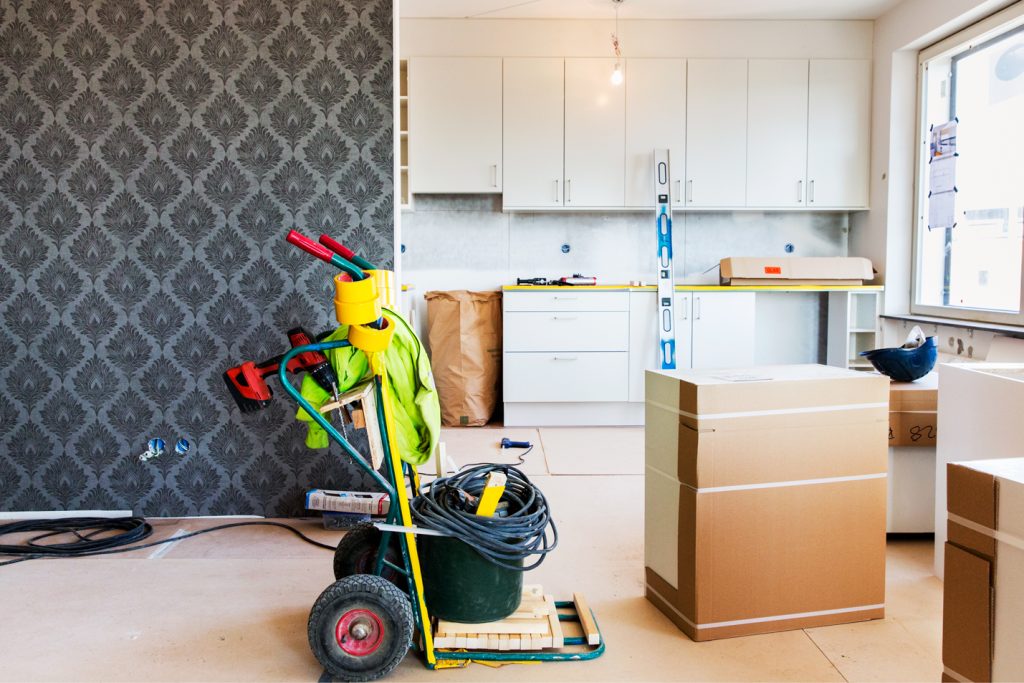Building equity in a home is an important step toward becoming financially secure and reducing debt.
Equity is the difference between what you owe on your mortgage loan and the current market value of your home. If you build enough equity, you can use it to reduce debt or make other investments that will help improve your financial situation. You can also use equity to pay for various expenses (e.g., a college education or medical costs) or even to finance home improvements on the property that created the equity in the first place.
In this comprehensive guide, you’ll learn the basics of how to build equity in a home, the length of time it takes to do so, and seven essential tips to help you get started.
What does it mean to build equity in a home?
Building home equity is a process: As you pay down your mortgage, you own a larger stake in your home. The higher the property’s market value and the lower the loan balance, the more equity you have. The market value of your home is what someone would be willing to pay for it if you were to sell it in the current market.
Building equity also involves taking steps to increase your home’s value, such as making improvements or paying off your mortgage loan faster than scheduled. Even though these strategies approach equity from different angles, both result in an increase in the amount of the home’s value in comparison to the amount you owe on your loan.
With this additional equity you can provide refinance your loan for a lower interest rate, take out a loan against the equity in your home, access a home equity line of credit (HELOC) or simply provide more financial security.
It’s important to note that lenders generally require you to have at least 15% to 20% of the equity in a home before they will consider allowing you to borrow against it.
How long does it take to build equity in a home?
The amount of time it takes to build equity in a home can vary greatly depending on the initial value of the home, the amount you owe on your mortgage loan and the amount of money you are putting towards paying off the loan. Loans with shorter terms and larger down payments build equity significantly faster than loans with longer terms.
Generally speaking, if you have a good credit score and make your monthly payments on time, you should be able to build sizable equity in your home over the course of five to 10 years.
Take the following example (equity figures are approximate):
Home price: $250,000
Down payment: 20% ($50,000)
Mortgage loan: $200,000
Loan terms: 6% interest over 30 years
Equity after:
- 5 years: $64,000
- 10 years: $83,000
- 15 years: $108,000
- 20 years: $142,000
Of course, this calculation doesn’t take into account any potential changes in the value of your home, which could significantly increase or decrease the amount of equity you have in your home, but it gives you an idea of where you’re starting from.
How to build equity in your home: 7 equity-building tips
As previously mentioned, there are several methods for building home equity, from putting down a larger down payment and making more than minimum monthly payments to increasing the value of your home through renovations and improvements.
Here are seven key tips to help you get started:
1. Make a large down payment when purchasing a home
With VA loans and FHA loans, it’s possible to purchase a home with little or no down payment. While this could be tempting for first-time homeowners, making a larger down payment will significantly reduce the amount of money you owe on your loan and help you to build equity faster.
This is one of the simplest and most straightforward methods for building equity in your home. Making a higher down payment can also have several positive downstream effects such as lower monthly mortgage payments, lower interest rates and, if you put at least 20% down, no PMI (private mortgage insurance) payment.
2. Pay more than the minimum monthly mortgage payment
Another straightforward way to build equity in your home is to make more than the minimum monthly payments. Similar to a credit card, mortgages come with a minimum monthly payment that is split between paying down the principal (the amount you borrowed) and the interest (what you pay for borrowing the money).
By making larger payments each month, more of your payment goes towards paying down the principal and building equity in your home while a smaller portion goes towards paying off interest. Even an extra $50 or $100 each month can make a big difference over the course of five or 10 years.
3. Take on home improvement projects to increase your home’s value
Picking strategic renovations and improvements to your home not only improves your quality of life, but can also significantly increase the property’s value.
Some popular home improvement projects that can increase your home’s value include remodeling your kitchen, adding new appliances, improving the landscaping, upgrading the bathrooms, finishing the basement and making any necessary energy-efficiency upgrades. Larger-scale projects such as adding a deck, sunroom or pool can also be great investments that will help you increase your home’s value over time.
If you already have enough equity in your home, you may also be able to take out a home equity loan or line of credit to help finance these projects. With this method, you’re actually using the existing equity you have to create even more equity in the future.
4. Pay off your mortgage sooner, but be mindful of prepayment penalties
With some mortgage loans, you may be able to pay off the loan sooner without incurring any prepayment penalties.
Prepayment penalties are charges that are assessed if you pay off your mortgage before the end of the loan term. These penalties can be expensive, so make sure to check with your lender before making any decisions about paying off your mortgage early.
If there are no prepayment penalties, shortening the life of your loan is a great way to build equity in your home faster. This will mean higher monthly payments, but it can save you thousands of dollars in interest over the long run.
5. Refinance a shorter loan term
If you’re not able to pay off your mortgage early without incurring a penalty, another option is to refinance into a shorter loan term. This is essentially like starting from scratch with a shorter loan period, but it can reduce your total interest costs over the life of the loan.
By refinancing into a shorter loan term, you’re increasing the amount of your monthly payments that go towards paying off the principal, which means you’re building equity faster. This is a great option for homeowners that have built up some home equity and want to increase it even more.
It’s important to note, however, that refinancing may require you to pay new closing costs along with other fees related to the new loan. Additionally, you should be sure that the monthly payments fit into your budget and that the new interest rate is low enough to make it worth it.
6. Steer clear of private mortgage insurance (PMI)
Private mortgage insurance (PMI) is a type of insurance that lenders generally require when borrowers make a down payment of less than 20% on the purchase of a home. This insurance is meant to protect the lender in case the borrower defaults on their loan. While private mortgage insurance can be helpful if you are in a bind, it can be quite costly and should be avoided if possible.
By making a larger down payment you’ll avoid having to pay for PMI. Additionally, if you do have to pay PMI at first but you’re able to build up enough equity in your home over time, you’ll be able to cancel the PMI when you reach the required threshold.
There is even a federal housing regulation, The Homeowners Protection Act of 1998, that states that the PMI must be canceled when a home reaches 78% loan-to-value ratio (LTV). In other words, this PMI canceling regulation goes into effect when a homeowner has built up 22% equity in their home.
7. Wait for your property value to increase
While it may not be possible to control the value of your home, you can wait for property values in your area to increase. As real estate prices go up, the equity that you have in your home will increase as well.
However, there are no guarantees that real estate prices will go up (or stay there), so this should be seen more as a long-term strategy rather than a sure thing or quick fix. But if property values do go up, it could substantially increase the amount of equity that you have in your home without you having to do anything other than sit and wait.
How to build equity without buying a house
While purchasing a home is one of the most common and powerful ways to build equity, it’s not the only way. Here are some other ways to build up equity without purchasing a home:
- Invest in stocks and bonds: Investing in the stock market can be a great way to build equity over time. By investing regularly and holding onto your investments for the long term, it’s possible to see returns that significantly outperform the rate of inflation. Even if you do own a home, investing in stocks and bonds can also be a great way to diversify your portfolio and reduce risk.
- Invest in a business: Another way to build equity is by investing in a business. This can be done through the purchase of stock, through the purchase of an ownership stake in a company, by gaining employment in a company with stock options or simply by starting your own business. While investing in businesses can be risky, the potential rewards make it an enticing option.
- Open a retirement account: Investing in a retirement account such as an IRA or 401(k) will also help you to build equity. These accounts are designed to help you save for retirement and, with compound interest, are a powerful way to build wealth. Plus, many employers will match your contributions up to a certain percentage, allowing you to build up your equity even faster.
Do condos build equity?
Yes. Condos, townhomes and other types of real estate all build equity just like any other type of property. The same principles apply: If the market value of your property increases, the equity in your home will increase, as well. You can also build equity in these properties in all the same ways as discussed above.
Do mobile homes build equity?
Yes. Mobile homes, like other types of real estate, can also build equity as long as the amount you own increases vs the amount you owe.
Summary of Money’s how to build equity in a home
Building equity in a home is a great way to increase your net worth and financial security. The amount of equity you have in the house is determined by the balance of what you owe on the house and the current market value of the property.
To build equity in a home, you can make extra payments on your mortgage, make a larger down payment, refinance your loan to a lower rate or shorter term, avoid private mortgage insurance (PMI), or make improvements to the home that increase its value. By following these steps, you’ll be able to quickly build equity in your home and enjoy the financial benefits that come with it.
Whether you’re looking for the best home equity loans or trying to figure out how much equity you have in your home, it’s important to understand the basics of equity and how it works.
Read the full article here







